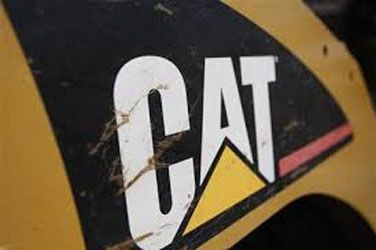Caterpillar Execs To Testify Before Congressional Committee Tuesday

Caterpillar Inc. will go before a congressional committee to explain how it calculates its taxes from sales to foreign customers. Its representatives will argue that they were merely making business more efficient, doing what many multinationals have already done.
“We grow and build near out customers worldwide, not only because it’s what they demand, but because remaining globally competitive helps create jobs in the United States,” said Julie Lagacy, a vice president at Caterpillar Inc. responsible for financial services, in a company press release.
The Peoria, Il.–based company is the world’s largest manufacturer of construction and mining equipment, and saw $55.7 billion in sales and revenues last year, with an effective tax rate of 29 percent.
At a hearing Tuesday morning, representatives will sit before the Senate’s Permanent Subcommittee on Investigations, which has been investigating the “structures and methods employed by multinational corporations to allocate income outside of the United States,” and how they relate to American tax laws.
Led by Sen. Carl Levin (D-Mich.), the panel has already investigated the tax strategies of Apple Inc., Microsoft Corporation and the Hewlett-Packard Company.
Specifically, they’ll be focusing on a Geneva-based affiliate company called Caterpillar SARL (CSARL) that was established in 1997 and sells spare parts to customers in Europe, Africa and Asia.
The subsidiary was organized under Swiss law in 1997, and owned by foreign corporations that are controlled by Caterpillar.
Before the restructuring, Caterpillar would buy purchased finished replacement parts (PFRP) for its products from unrelated American suppliers, and sold a portion to CSARL, which then sold the parts to foreign markets and profits from both parties were taxable in the United States.
After the re-arrangement, CARL was allowed to purchase parts directly from American suppliers for sales abroad.
The process was overseen by advisers from Price WaterhouseCoopers (PwC), whose representatives will also testify tomorrow.
“The fact that CSARL now directly purchases its parts inventory reflects nothing more than the standard business operations and tax planning that any prudent multinational enterprise would employ in conducting its operations and complying with applicable tax laws around the world,” reads a joint statement from Robin Beran, Caterpillar’s global tax and trade director, Rodney Perkins, retired international tax manager, and Julie Lagacy.
They argue that “as a matter of both form and substance, CSARL purchases and sells these parts in millions of transactions with entirely unrelated parties. CSARL obtains not only legal title to these parts, but also full beneficial and economic ownership in the sense of enjoying upside potential and bearing downside risk.”
The parts were usually shipped right from suppliers to customers, while any excess could be stored, along with Caterpillar’s goods, in Caterpillar’s warehouses in the United States. Sometimes one or the other party could use each other’s inventory if they ran out, which would later be replenished.
The view of the subcommittee is that the new arrangements didn’t create a significant change in the “economic substance” of the company.
“The restructuring simply removed Caterpillar from the outbound PFRP supply chain,” argues John Steines, Jr., a lawyer and law professor at New York University specializing in U.S. income taxation, who will serve as an expert witness for Caterpillar.
He wrote that CSARL benefited from increased market exposure, and paid annual royalties to Caterpillar for use of its intellectual property and reimburses them for any engineering or logistics services.
“In my professional judgment, it is extremely unlikely that Caterpillar’s supply chain restructuring and the countless ensuing sales conducted pursuant to the restructuring are vulnerable to attack for lack of economic substance,” he wrote in his testimony, released on Monday.
Caterpillar was also the subject of a settled lawsuit in 2011 alleging the company avoid about $2 billion in U.S. taxes from 2000 to 2009, according to a lawsuit filed by Daniel Schlicksup, a former global tax manager for the company until 2008, according to Bloomberg.
The hearing will begin at 9:30 a.m. on Tuesday.
© Copyright IBTimes 2025. All rights reserved.






















